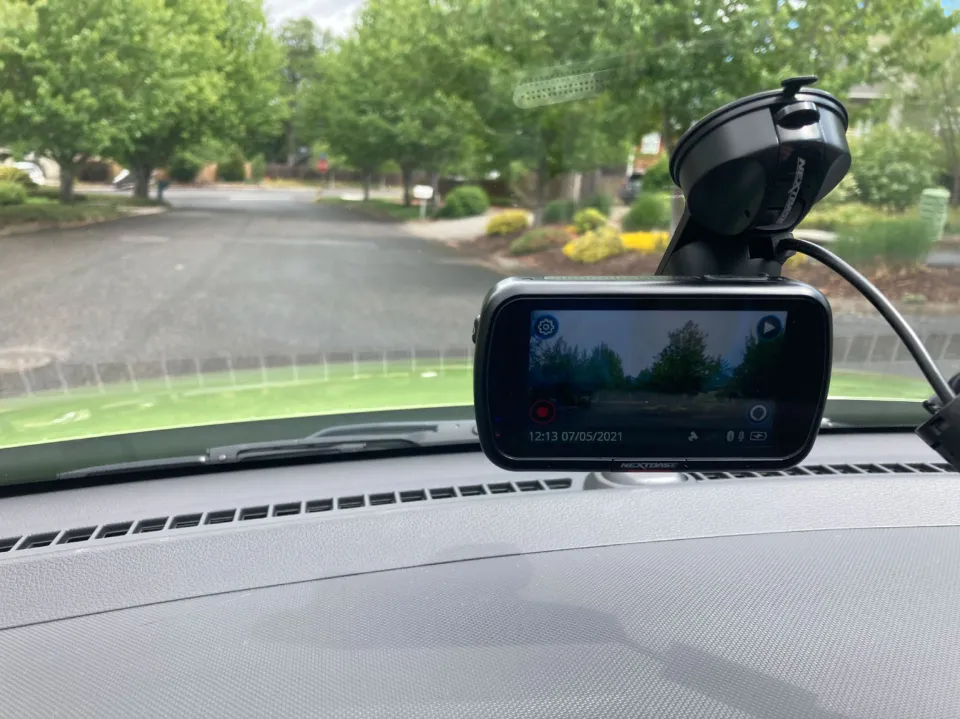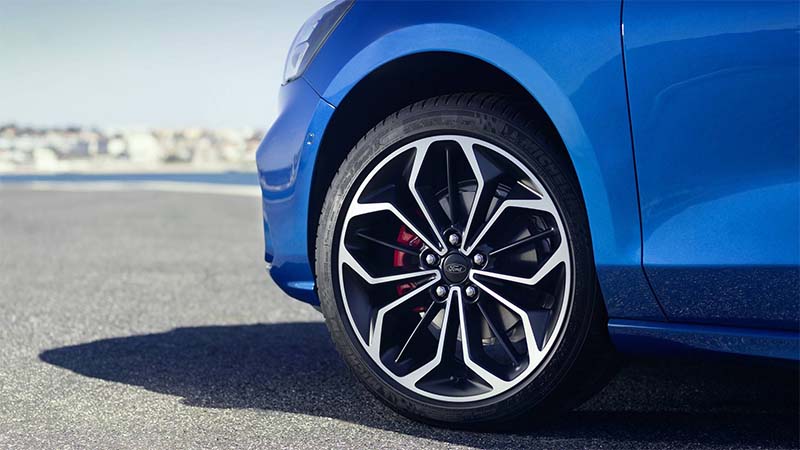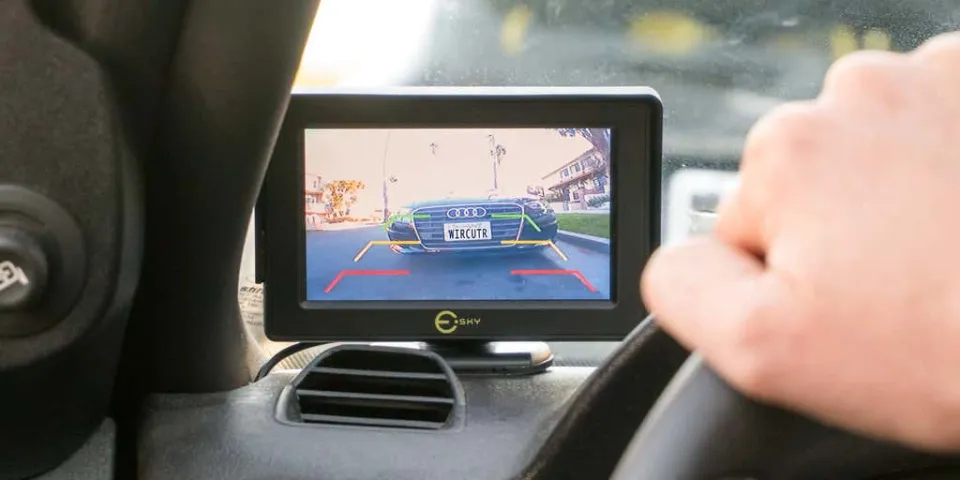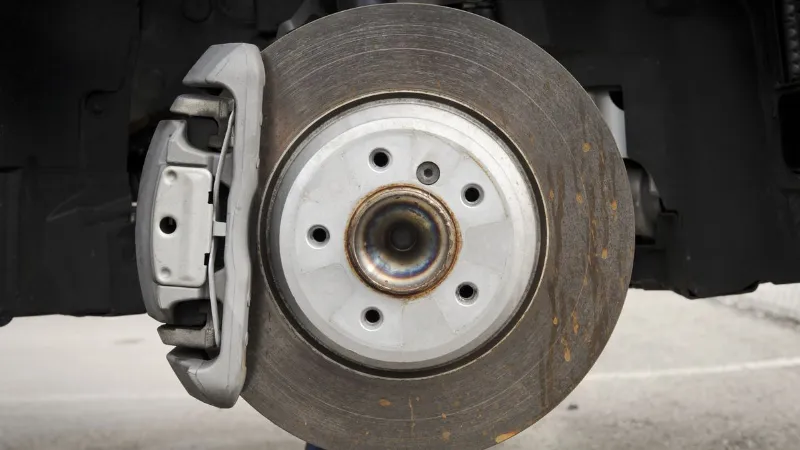This article will cover how to properly maintain your car’s brakes as well as other subjects like how frequently often should change them and how to spot faulty brakes.
If you’ve been wondering how often should you replace your brakes, then the answer should be after 50,000 miles or so. That will still depend on a number of variables, including the kind of vehicle you drive and your driving habits. Keep reading.
How Often Should You Replace Your Brakes?
Your vehicle’s make, model, and how frequently you drive it all play a role in when the brakes should be replaced. We advise consulting the manual and basing your maintenance schedule on it because the manufacturer’s guide will give you the most precise timeline.
If you don’t know your car’s exact mileage, the general rule of thumb is to have your brakes checked once a year, or every 20,000 to 30,000 miles. Brake pad replacement should be done every 10,000 to 20,000 miles, and rotor replacement should be done every 50,000 to 70,000 miles.
Depending on how you drive your car, these mileage figures can change. Your brakes will deteriorate much more quickly than those on a vehicle used for highway driving if you frequently tow large loads or are stuck in stop-and-go traffic. You’ll also wear out the brake pads more quickly if you have a tendency to brake forcefully and frequently.

Warning Signs You Need to Change Your Brakes
Mileage isn’t the only guideline to use when deciding on the right time to change your brakes. Most brakes are designed to signal to you that the pads have worn too thin; this can either be a light that pops up on your dashboard or a squealing sound that is created by a “feeler,” or piece of metal that makes noise when it comes in contact with the rotor but doesn’t damage it.
Stopping a car is hard work that will eventually wear the different brake pieces down until they can’t create enough friction to work properly. The warning signs that your brake system needs maintenance include:
- Vibration
- Grinding
- Pulling
- Squealing
- Fading
- Softening of the brakes when pressed
The brakes need to be checked if you encounter any of these problems. If you keep driving with worn brakes, the metal of the pad will likely grind against the rotors, potentially damaging them. The rotors will eventually become too damaged to be repaired and will need to be completely replaced, which will be much more expensive.
Driving a car with bad brakes is no longer safe. You won’t be able to stop safely in an emergency situation and risk a major car accident. It’s crucial to schedule an appointment as soon as possible at a reputable auto repair shop to have your brake system checked out and fixed.
What’s the Difference Between Rotors and Pads
The brake rotors and brake pads are the two specific parts that are changed when you change your car’s brakes. Although they both contribute to the braking system of your car, their functions when it comes to slowing or stopping your car are distinct.
- Brake rotors– are found inside every wheel. They are discs that spin at the same pace as your wheels. The car is actually slowed down when you apply the brakes because the brake pads compress around the rotors. Although brake rotors are substantial and pressure-resistant, they eventually lose their effectiveness.
- Brake pads– are steel plates with frictional materials bonded on the surface. The brake pads and brake rotors come in contact when you apply the brakes. Your car will stop due to the friction it creates. Due to the constant friction, brake pads need to be replaced more often compared to brake rotors.
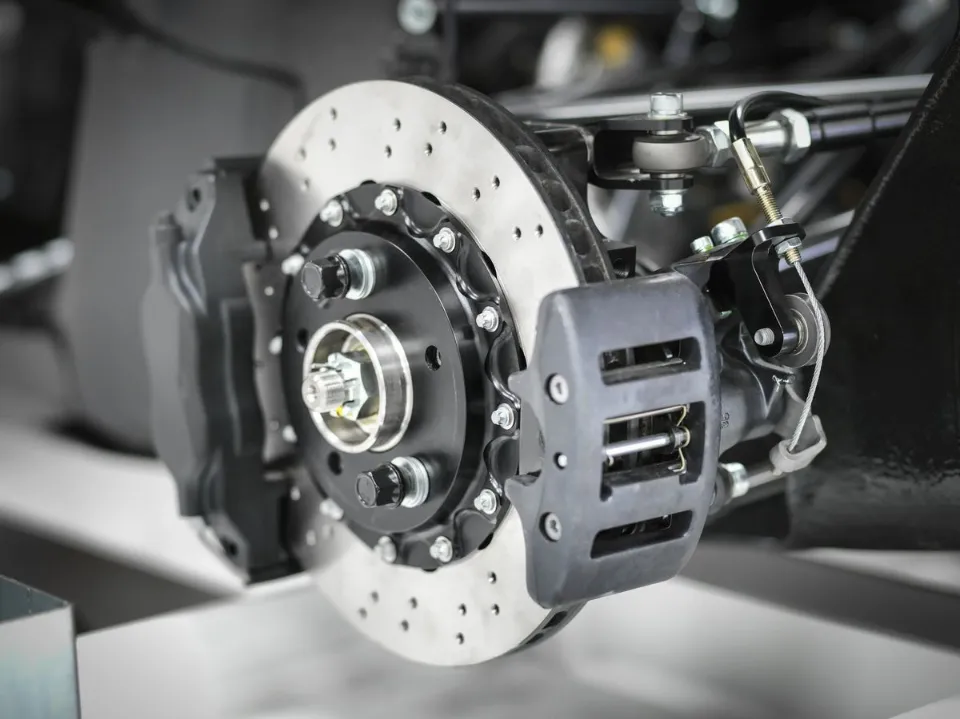
Should You Change Brake Rotors and Pads at the Same Time?
It is advised by experts to replace brake pads and rotors at the same time. It may seem a little strange, especially to drivers who only intend to change their brake pads. Expert mechanics, though, have a justification for that.
Your car’s brake rotors directly affect how the brake pads perform and wear. When brake pads are the only component replaced on a car, some car owners frequently experience uneven pad wear soon after because of problems with the rotors. This forces them to replace the brake pads as well as the rotors prematurely.
If your neighborhood mechanic advises replacing the brake rotors and pads, make sure the brake rotors are thoroughly inspected to ensure they are in good condition. If not, it’s best to have the rotors replaced right away to save money and time later on and to prevent additional expenses.
It is widely recommended that the pads and rotors are replaced by pairs and per axle. If one of the front brake pads wears out, it’s best to replace the other one on the same axle. Keep in mind that the front and the rear brakes wear out at different rates. Because they are working harder, the front brakes may need to be replaced more frequently.
Why You Should Change Your Brakes?
The effectiveness, durability, and longevity of your car’s braking system are all improved by routinely replacing your brake pads and rotors. Driving is more than just getting from point A to point B. The time between trips is always unpredictable.
Completely neglecting your vehicle braking system can lead to accidents that can put you or a bystander in danger. For instance, the car would take some time to stop if your worn-out brake pads did not have enough friction. A brake rotor that is malfunctioning might not have enough power to slow down the car. Especially in an emergency, both of these scenarios may be hazardous.
Your car’s braking system is a lifesaver. Make sure the brakes are operating as they should in your best interest.
Why does my car shake when I brake? There are a few reasons why your vehicle might experience shaking, and it’s important to address this issue before it becomes a bigger deal.
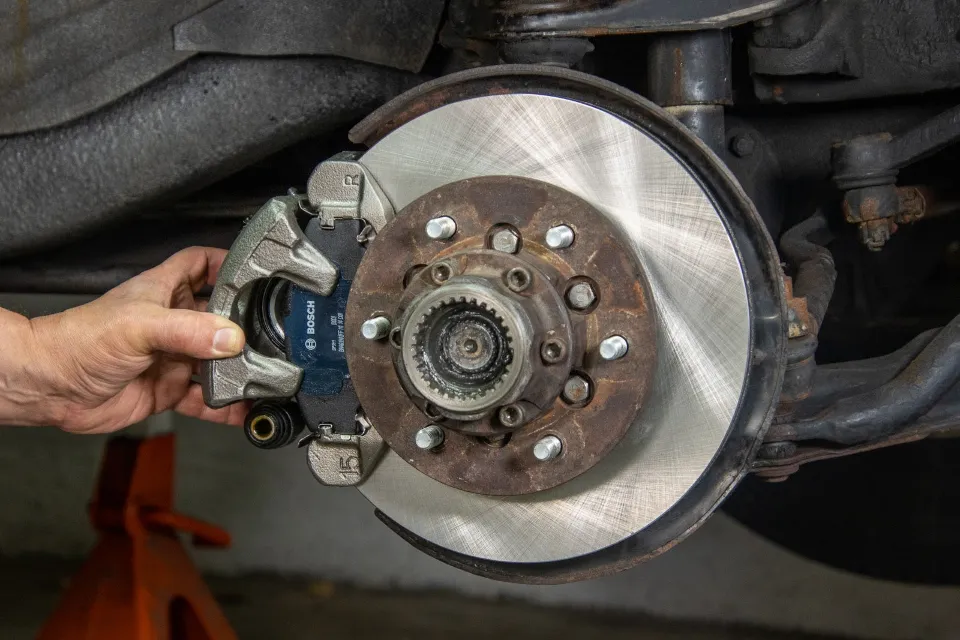
How Long Do Brakes Last?
It’s a persistent, debatable question, even if it isn’t an easy one to answer. You should read reviews if you want to know for sure how long a particular model has lasted different customers. If you start monitoring your own vehicles, eventually you will get a feel for the rate at which you’re wearing the brakes down, and you’ll probably be able to estimate when a replacement is going to be necessary. For the majority of drivers, a set of brake pads lasts between two and five years.
Depending on whether or not they are frequently hauling cargo or towing, trucks frequently suffer different outcomes when using brakes. There’s a good chance that if you tow a lot, your brake pads will wear out much more quickly.
Even if you are confident that you understand how quickly you are wearing through a pad, brake inspections are still advised because it’s uncommon for people to go longer than five years on pads if a vehicle is driven frequently. Why? Because brake inspections examine the entire braking system, not just the brake pads. Even if you replace the pads as advised, other parts may still rust or wear down. An inspection will help identify these issues before they complicate the situation and involve other parts, just like it does for your pads.
How Much Does It Cost to Change Brakes?
Brake pad replacement services typically cost between $115 and $270 per axle. Changing brake rotors can cost between $150 and $200 per axle. Replacement costs for brake rotors and pads can range from $400 to $500.
It’s critical to remember that different professional mechanics have different hourly rates. Manufacturers charge different prices for each part. If you prefer to buy your own brake parts, you should expect the following prices:
- Brake Rotors: The cost per item ranges between $30 and $75. Depending on the quality, prices may increase.
- Brake Pads: All four wheels can cost anywhere between $35 and $150.
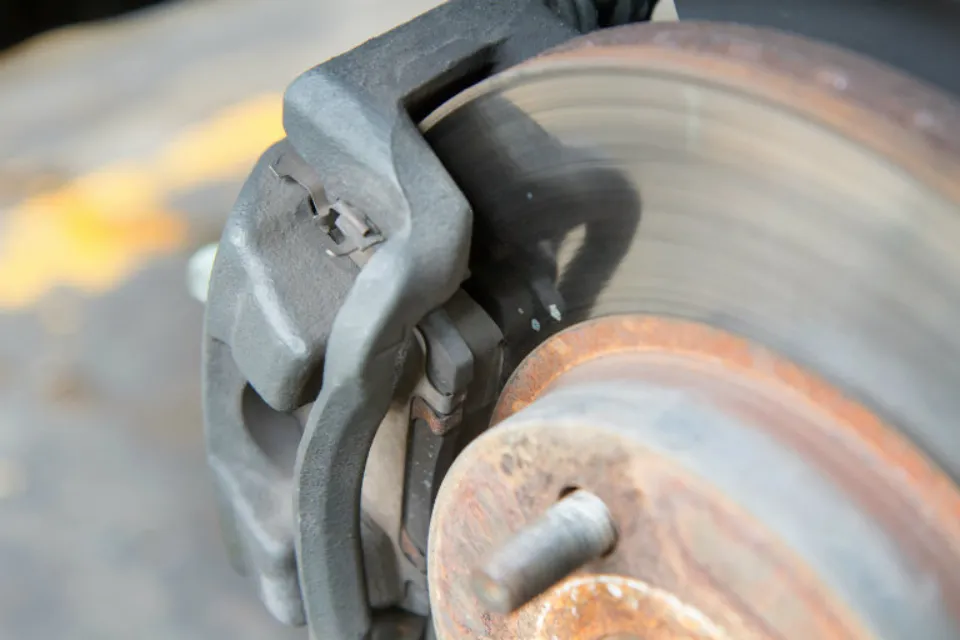
FAQs
How Long Should Brake Pads Last Km?
As a general rule, you should be able to get approximately 30,000km to 90,000km out of your brake pads. Consider your driving habits, including how frequently you drive, where you drive, and how you drive, to get an idea of how long your brake pads will last.
Can Brake Pads Wear Out in 3 Months?
Every 6 months or 15,000 miles, you should have your brake pads checked. Most brake pads will wear out in about 25,000 to 65,000 miles, however, the wear and tear on your brake pads depends on a wide variety of factors including your driving style, what surfaces you’re driving on, and the weight of your vehicle.
Should I Replace All Brakes Or Just Front?
Well, first, you absolutely should replace both front or both rear brake pads at the same time. One ought to be deteriorating at roughly the same rate as the other, unless there is a serious problem.
Why Do Front Brakes Wear Faster?
Additionally, your front brake pads will deteriorate more quickly than your back brake pads. The front of your vehicle handles a lot more weight transfer as you brake, causing more wear. Over time heat and friction also contribute to brake pad wear. The amount of wear and tear your brake pads experience depends on which axle they are on.
Summary: How Often Should You Replace Your Brakes?
If you’ve been wondering how often should you replace your brakes, then the answer should be after 50,000 miles or so.
Your car’s braking system is one of its most critical safety features. It is best to have your car checked by a professional if your brake motors or pads are beginning to wear down. In addition to keeping your car in top shape, maintaining and caring for your brakes keeps you and other drivers safe.
If you have any questions, please leave a comment. KV Auto tries to give you the best car industry information. Thank you for reading.
Read about


